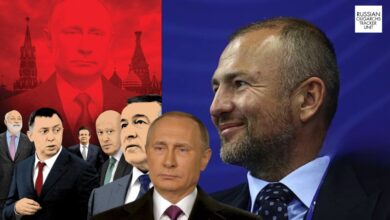Canada sanctions more Russians over Navalny death 2024

Background on the Navalny case
The poisoning and subsequent death of Alexei Navalny, a prominent Russian opposition figure, sent shockwaves across the globe. Navalny fell critically ill on August 20, 2020, while on a flight in Russia. He was later transferred to Germany for medical treatment, where tests confirmed that he had been poisoned with a nerve agent called Novichok. This incident raised serious concerns about human rights violations and violations of international law.
Overview of Canada’s response to Navalny’s death
Canada, known for its strong stance on human rights, swiftly condemned the poisoning of Navalny and took decisive action against Russia. The Canadian government, in coordination with its international allies, imposed sanctions on several Russian individuals and entities believed to be involved in the poisoning and subsequent cover-up. These sanctions were aimed at holding those responsible accountable and sending a clear message that such actions would not be tolerated.
Explanation of sanctions and their purpose
Sanctions are a form of economic and political pressure imposed by one country or group of countries on another to change its behavior. In the case of the Navalny poisoning, Canada’s sanctions were designed to target specific individuals and entities directly involved in the incident. These individuals include high-ranking Russian officials and key members of President Vladimir Putin’s government, such as the country’s Prosecutor General and the head of its prison service.
The purpose of these sanctions is threefold. Firstly, they seek to impose consequences on those responsible for the poisoning and cover-up. By targeting individuals and entities with economic and travel restrictions, Canada aims to make them personally accountable for their actions. Secondly, the sanctions serve as a deterrent to others who may consider engaging in similar human rights violations. Lastly, they send a strong message of solidarity with the international community, reaffirming Canada’s commitment to defending human rights and promoting accountability.
List of individuals and entities sanctioned by Canada
Canada’s list of sanctioned individuals and entities includes high-ranking officials and key members of the Russian government. The individuals targeted by the sanctions include Alexander Bastrykin, the head of Russia’s Investigative Committee, Igor Krasnov, the country’s Prosecutor General, and Alexander Kalashnikov, the head of the Federal Penitentiary Service. These individuals are believed to have played significant roles in the Navalny poisoning and subsequent cover-up.
In addition to these individuals, Canada also imposed sanctions on several entities, including the State Scientific Research Institute for Organic Chemistry and Technology, which is believed to have developed the nerve agent Novichok. By targeting both individuals and entities, Canada aims to disrupt the networks and institutions associated with the Navalny poisoning.
Impact of the sanctions on Russia and the international community
The imposition of sanctions by Canada has had a significant impact on Russia and the international community. For Russia, these sanctions represent a blow to its reputation and a direct challenge to its actions. The targeted individuals and entities face severe economic and travel restrictions, making it difficult for them to operate on the global stage. This not only affects their personal lives but also undermines their ability to carry out their official duties effectively.
Furthermore, the international community views Canada’s sanctions as a strong and principled response to the Navalny case. By imposing targeted sanctions, Canada has shown its commitment to defending human rights and ensuring accountability for human rights violations. This has garnered support and admiration from countries around the world that share similar values and concerns.
Comparison to other countries’ responses to the Navalny case
Canada’s decision to impose additional sanctions on Russia aligns with similar actions taken by other countries. The European Union and the United States, among others, have also imposed sanctions on Russian officials in response to the Navalny poisoning. This coordinated effort sends a united message to Russia that the international community will not tolerate human rights violations and will take action to hold those responsible accountable.
However, it is worth noting that the extent and nature of the sanctions imposed by each country may vary. While Canada’s sanctions focus on specific individuals and entities, other countries may have chosen to target different individuals or adopt broader measures. Nevertheless, the collective response demonstrates a shared determination to address the Navalny case and challenge Russia’s actions.
Analysis of Canada’s approach to human rights violations
Canada’s response to the Navalny case reflects its longstanding commitment to human rights and its willingness to take a strong stance against human rights violations. The country has consistently championed human rights issues on the international stage, using both diplomatic and economic tools to promote accountability and justice. The imposition of sanctions in the Navalny case is a clear example of Canada’s approach to addressing human rights violations in a targeted and impactful manner.
Moreover, Canada’s response is rooted in the belief that human rights are universal and should be protected regardless of political considerations. By taking a principled stand against the Navalny poisoning, Canada sends a message that human rights should not be compromised for political expediency. This approach underscores Canada’s commitment to upholding international law and holding perpetrators accountable for their actions.
Criticisms and support for Canada’s sanctions
While Canada’s sanctions have received widespread support from the international community, there have been criticisms as well. Some argue that the sanctions may not be strong enough to truly deter future human rights violations or change Russia’s behavior. They contend that more robust measures, such as broader economic sanctions or diplomatic isolation, are necessary to achieve meaningful results.
On the other hand, supporters of Canada’s sanctions commend the government for taking swift action and using targeted measures to hold individuals accountable. They argue that these sanctions, although limited in scope, send a powerful message and contribute to the broader international effort to seek justice for Navalny’s death. They view Canada’s response as a principled stand against human rights violations and an important step towards promoting accountability on the global stage.
Future implications and potential developments
The imposition of sanctions by Canada represents just one aspect of the international response to the Navalny case. As investigations continue and more evidence emerges, there is a possibility of further developments and actions being taken against Russia. The true impact of the sanctions and their effectiveness in achieving accountability will become clearer over time.
Additionally, the Navalny case has broader implications for the relationship between Russia and the international community. The poisoning and subsequent actions have strained diplomatic ties and raised questions about Russia’s commitment to international norms and human rights. It remains to be seen how these developments will shape future interactions and the global response to similar incidents.
Conclusion
Canada’s decision to impose additional sanctions on Russian individuals and entities in response to the Navalny case underscores its commitment to defending human rights and promoting accountability. These sanctions represent a crucial step towards achieving justice for Navalny’s death and challenging Russia’s actions on a global scale. Although the true impact of the sanctions and their long-term effectiveness remain to be seen, Canada’s unwavering stance sends a powerful message that human rights violations will not be tolerated. As the international community continues to rally behind the pursuit of justice, the Navalny case serves as a reminder that the fight for human rights requires collective action and unwavering determination.








